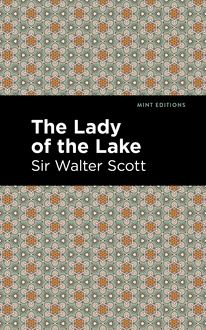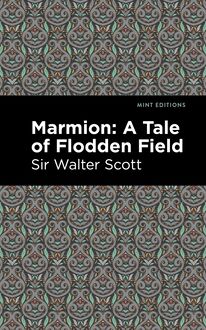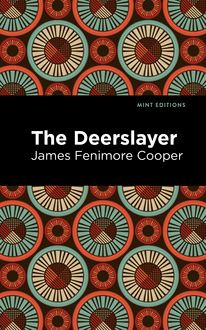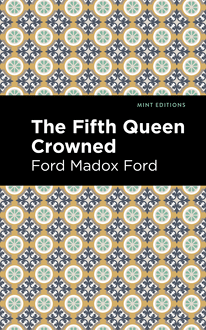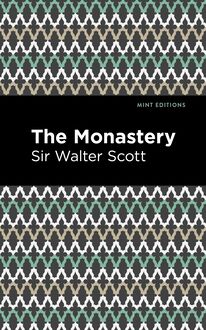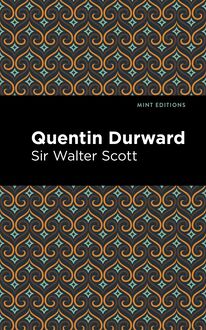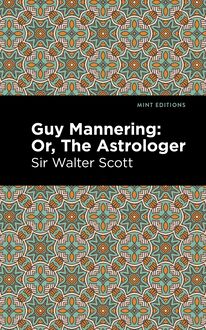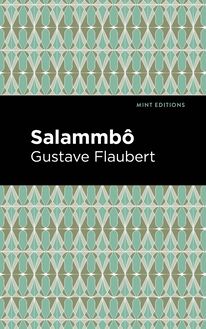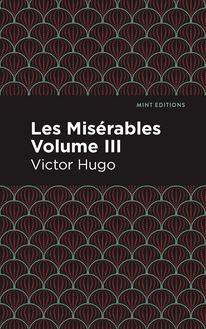-
 Univers
Univers
-
 Ebooks
Ebooks
-
 Livres audio
Livres audio
-
 Presse
Presse
-
 Podcasts
Podcasts
-
 BD
BD
-
 Documents
Documents
-
- Cours
- Révisions
- Ressources pédagogiques
- Sciences de l’éducation
- Manuels scolaires
- Langues
- Travaux de classe
- Annales de BEP
- Etudes supérieures
- Maternelle et primaire
- Fiches de lecture
- Orientation scolaire
- Méthodologie
- Corrigés de devoir
- Annales d’examens et concours
- Annales du bac
- Annales du brevet
- Rapports de stage
La lecture à portée de main
Vous pourrez modifier la taille du texte de cet ouvrage
Découvre YouScribe en t'inscrivant gratuitement
Je m'inscrisDécouvre YouScribe en t'inscrivant gratuitement
Je m'inscrisEn savoir plus
Vous pourrez modifier la taille du texte de cet ouvrage
En savoir plus

Description
When King Richard the Lionheart’s health began to decline, the English leader organized a truce with the leader of the Islamic forces, Saladin. Agreeing to cease the battles on the condition that Jerusalem would be under Muslim control, the two leaders gave orders to their troops to return to their homes. However, Sir Kenneth, a Scottish knight, was in the search of a certain monk rather than his home when he encounters Emir, a cavalryman for Saladin’s forces. At first distrustful of each other and used to warfare, the two soldiers engage in a one-on-one battle. But when both refuse to surrender, the men realize that they are equally matched, and with the truces between their leaders, there was no reason to fight. Apon this realization, Amir and Kenneth become friends. When Kenneth later mentions that he is on a quest to find a Christian monk, Emir offers to accompany him, as he knows the terrain better than Kenneth. After happily accepting the offer, the two fighters set off on their journey, facing villains, deception, romance, and duels. Admired for its rich prose and skillfully portrayed plotline, Sir Walter Scott’s The Talisman is an intricate and theatrical work of literary art. With well-presented characters and an engrossing setting, The Talisman offers the rare depiction of a friendship between an Arabic and English soldier in the 11th century as well as the seldomly portrayed time of peace during the crusades. With themes of chivalry, virtue, and violence paired with compelling representation and a well-executed plot, Sir Walter Scott’s The Talisman exceeds high expectations. This edition of The Talisman by Sir Walter Scott now features a new, eye-catching cover design and is printed in a font that is both modern and readable. With these accommodations, this edition of The Talisman crafts an accessible and pleasant reading experience for modern audiences while restoring the original mastery and drama of Sir Walter Scott’s literature.
Sujets
Informations
| Publié par | Mint Editions |
| Date de parution | 14 mai 2021 |
| Nombre de lectures | 1 |
| EAN13 | 9781513285450 |
| Langue | English |
| Poids de l'ouvrage | 1 Mo |
Informations légales : prix de location à la page 0,0500€. Cette information est donnée uniquement à titre indicatif conformément à la législation en vigueur.
Extrait
The Talisman
Sir Walter Scott
The Talisman was first published in 1825.
This edition published by Mint Editions 2021.
ISBN 9781513280431 | E-ISBN 9781513285450
Published by Mint Editions®
minteditionbooks.com
Publishing Director: Jennifer Newens
Design & Production: Rachel Lopez Metzger
Project Manager: Micaela Clark
Typesetting: Westchester Publishing Services
C ONTENTS I II III IV V VI VII VIII IX X XI XII XIII XIV XV XVI XVII XVIII XIX XX XXI XXII XXIII XXIV XXV XXVI XXVII XXVIII
I
They, too, retired
To the wilderness, but ’twas with arms.
— P ARADISE R EGAINED
The burning sun of Syria had not yet attained its highest point in the horizon, when a knight of the Red Cross, who had left his distant northern home and joined the host of the Crusaders in Palestine, was pacing slowly along the sandy deserts which lie in the vicinity of the Dead Sea, or, as it is called, the Lake Asphaltites, where the waves of the Jordan pour themselves into an inland sea, from which there is no discharge of waters.
The warlike pilgrim had toiled among cliffs and precipices during the earlier part of the morning. More lately, issuing from those rocky and dangerous defiles, he had entered upon that great plain, where the accursed cities provoked, in ancient days, the direct and dreadful vengeance of the Omnipotent.
The toil, the thirst, the dangers of the way, were forgotten, as the traveller recalled the fearful catastrophe which had converted into an arid and dismal wilderness the fair and fertile valley of Siddim, once well watered, even as the Garden of the Lord, now a parched and blighted waste, condemned to eternal sterility.
Crossing himself, as he viewed the dark mass of rolling waters, in colour as in duality unlike those of any other lake, the traveller shuddered as he remembered that beneath these sluggish waves lay the once proud cities of the plain, whose grave was dug by the thunder of the heavens, or the eruption of subterraneous fire, and whose remains were hid, even by that sea which holds no living fish in its bosom, bears no skiff on its surface, and, as if its own dreadful bed were the only fit receptacle for its sullen waters, sends not, like other lakes, a tribute to the ocean. The whole land around, as in the days of Moses, was “brimstone and salt; it is not sown, nor beareth, nor any grass groweth thereon.” The land as well as the lake might be termed dead, as producing nothing having resemblance to vegetation, and even the very air was entirely devoid of its ordinary winged inhabitants, deterred probably by the odour of bitumen and sulphur which the burning sun exhaled from the waters of the lake in steaming clouds, frequently assuming the appearance of waterspouts. Masses of the slimy and sulphureous substance called naphtha, which floated idly on the sluggish and sullen waves, supplied those rolling clouds with new vapours, and afforded awful testimony to the truth of the Mosaic history.
Upon this scene of desolation the sun shone with almost intolerable splendour, and all living nature seemed to have hidden itself from the rays, excepting the solitary figure which moved through the flitting sand at a foot’s pace, and appeared the sole breathing thing on the wide surface of the plain. The dress of the rider and the accoutrements of his horse were peculiarly unfit for the traveller in such a country. A coat of linked mail, with long sleeves, plated gauntlets, and a steel breastplate, had not been esteemed a sufficient weight of armour; there were also his triangular shield suspended round his neck, and his barred helmet of steel, over which he had a hood and collar of mail, which was drawn around the warrior’s shoulders and throat, and filled up the vacancy between the hauberk and the headpiece. His lower limbs were sheathed, like his body, in flexible mail, securing the legs and thighs, while the feet rested in plated shoes, which corresponded with the gauntlets. A long, broad, straight-shaped, double-edged falchion, with a handle formed like a cross, corresponded with a stout poniard on the other side. The knight also bore, secured to his saddle, with one end resting on his stirrup, the long steel-headed lance, his own proper weapon, which, as he rode, projected backwards, and displayed its little pennoncelle, to dally with the faint breeze, or drop in the dead calm. To this cumbrous equipment must be added a surcoat of embroidered cloth, much frayed and worn, which was thus far useful that it excluded the burning rays of the sun from the armour, which they would otherwise have rendered intolerable to the wearer. The surcoat bore, in several places, the arms of the owner, although much defaced. These seemed to be a couchant leopard, with the motto, “I sleep; wake me not.” An outline of the same device might be traced on his shield, though many a blow had almost effaced the painting. The flat top of his cumbrous cylindrical helmet was unadorned with any crest. In retaining their own unwieldy defensive armour, the Northern Crusaders seemed to set at defiance the nature of the climate and country to which they had come to war.
The accoutrements of the horse were scarcely less massive and unwieldy than those of the rider. The animal had a heavy saddle plated with steel, uniting in front with a species of breastplate, and behind with defensive armour made to cover the loins. Then there was a steel axe, or hammer, called a mace-of-arms, and which hung to the saddle-bow. The reins were secured by chain-work, and the front-stall of the bridle was a steel plate, with apertures for the eyes and nostrils, having in the midst a short, sharp pike, projecting from the forehead of the horse like the horn of the fabulous unicorn.
But habit had made the endurance of this load of panoply a second nature, both to the knight and his gallant charger. Numbers, indeed, of the Western warriors who hurried to Palestine died ere they became inured to the burning climate; but there were others to whom that climate became innocent and even friendly, and among this fortunate number was the solitary horseman who now traversed the border of the Dead Sea.
Nature, which cast his limbs in a mould of uncommon strength, fitted to wear his linked hauberk with as much ease as if the meshes had been formed of cobwebs, had endowed him with a constitution as strong as his limbs, and which bade defiance to almost all changes of climate, as well as to fatigue and privations of every kind. His disposition seemed, in some degree, to partake of the qualities of his bodily frame; and as the one possessed great strength and endurance, united with the power of violent exertion, the other, under a calm and undisturbed semblance, had much of the fiery and enthusiastic love of glory which constituted the principal attribute of the renowned Norman line, and had rendered them sovereigns in every corner of Europe where they had drawn their adventurous swords.
It was not, however, to all the race that fortune proposed such tempting rewards; and those obtained by the solitary knight during two years’ campaign in Palestine had been only temporal fame, and, as he was taught to believe, spiritual privileges. Meantime, his slender stock of money had melted away, the rather that he did not pursue any of the ordinary modes by which the followers of the Crusade condescended to recruit their diminished resources at the expense of the people of Palestine—he exacted no gifts from the wretched natives for sparing their possessions when engaged in warfare with the Saracens, and he had not availed himself of any opportunity of enriching himself by the ransom of prisoners of consequence. The small train which had followed him from his native country had been gradually diminished, as the means of maintaining them disappeared, and his only remaining squire was at present on a sick-bed, and unable to attend his master, who travelled, as we have seen, singly and alone. This was of little consequence to the Crusader, who was accustomed to consider his good sword as his safest escort, and devout thoughts as his best companion.
Nature had, however, her demands for refreshment and repose even on the iron frame and patient disposition of the Knight of the Sleeping Leopard; and at noon, when the Dead Sea lay at some distance on his right, he joyfully hailed the sight of two or three palm-trees, which arose beside the well which was assigned for his mid-day station. His good horse, too, which had plodded forward with the steady endurance of his master, now lifted his head, expanded his nostrils, and quickened his pace, as if he snuffed afar off the living waters which marked the place of repose and refreshment. But labour and danger were doomed to intervene ere the horse or horseman reached the desired spot.
As the Knight of the Couchant Leopard continued to fix his eyes attentively on the yet distant cluster of palm-trees, it seemed to him as if some object was moving among them. The distant form separated itself from the trees, which partly hid its motions, and advanced towards the knight with a speed which soon showed a mounted horseman, whom his turban, long spear, and green caftan floating in the wind, on his nearer approach showed to be a Saracen cavalier. “In the desert,” saith an Eastern proverb, “no man meets a friend.” The Crusader was totally indifferent whether the infidel, who now approached on his gallant barb as if borne on the wings of an eagle, came as friend or foe—perhaps, as a vowed champion of the Cross, he might rather have preferred the latter. He disengaged his lance from his saddle, seized it with the right hand, placed it in rest with its point half elevated, gathered up the reins in the left, waked his horse’s mettle with the spur, and prepared to encounter the stranger with the calm self-confidence belonging to the victor in many contests.
The Saracen came on at the speedy gallop of an Arab horseman, managin
-
 Univers
Univers
-
 Ebooks
Ebooks
-
 Livres audio
Livres audio
-
 Presse
Presse
-
 Podcasts
Podcasts
-
 BD
BD
-
 Documents
Documents
-
Jeunesse
-
Littérature
-
Ressources professionnelles
-
Santé et bien-être
-
Savoirs
-
Education
-
Loisirs et hobbies
-
Art, musique et cinéma
-
Actualité et débat de société
-
Jeunesse
-
Littérature
-
Ressources professionnelles
-
Santé et bien-être
-
Savoirs
-
Education
-
Loisirs et hobbies
-
Art, musique et cinéma
-
Actualité et débat de société
-
Actualités
-
Lifestyle
-
Presse jeunesse
-
Presse professionnelle
-
Pratique
-
Presse sportive
-
Presse internationale
-
Culture & Médias
-
Action et Aventures
-
Science-fiction et Fantasy
-
Société
-
Jeunesse
-
Littérature
-
Ressources professionnelles
-
Santé et bien-être
-
Savoirs
-
Education
-
Loisirs et hobbies
-
Art, musique et cinéma
-
Actualité et débat de société
- Cours
- Révisions
- Ressources pédagogiques
- Sciences de l’éducation
- Manuels scolaires
- Langues
- Travaux de classe
- Annales de BEP
- Etudes supérieures
- Maternelle et primaire
- Fiches de lecture
- Orientation scolaire
- Méthodologie
- Corrigés de devoir
- Annales d’examens et concours
- Annales du bac
- Annales du brevet
- Rapports de stage


